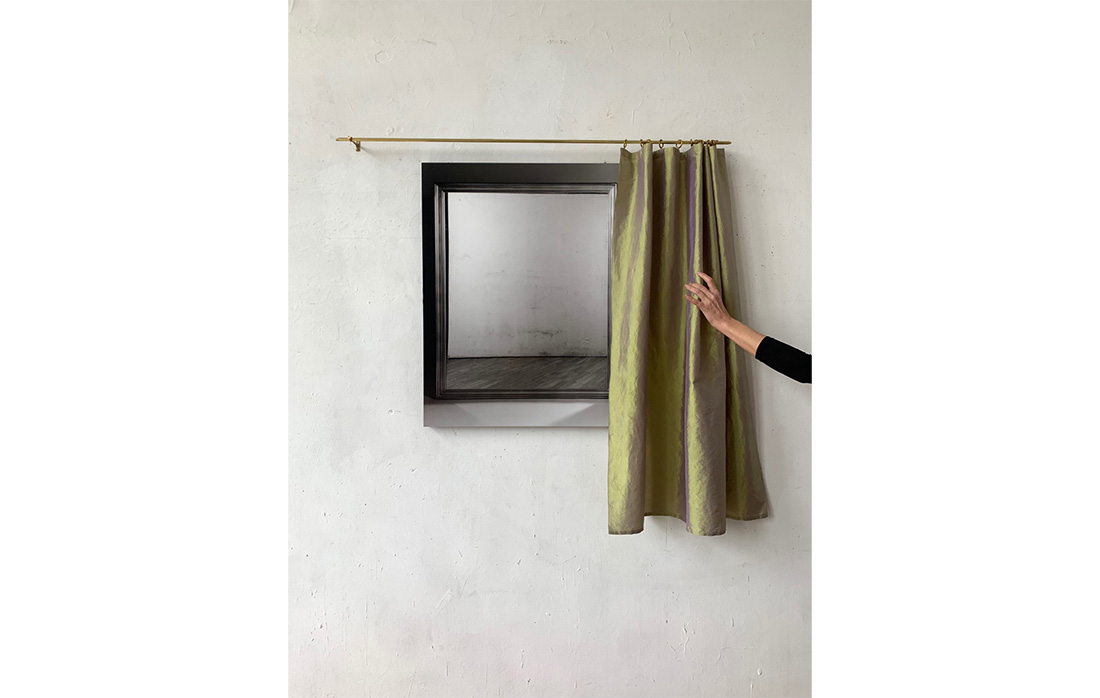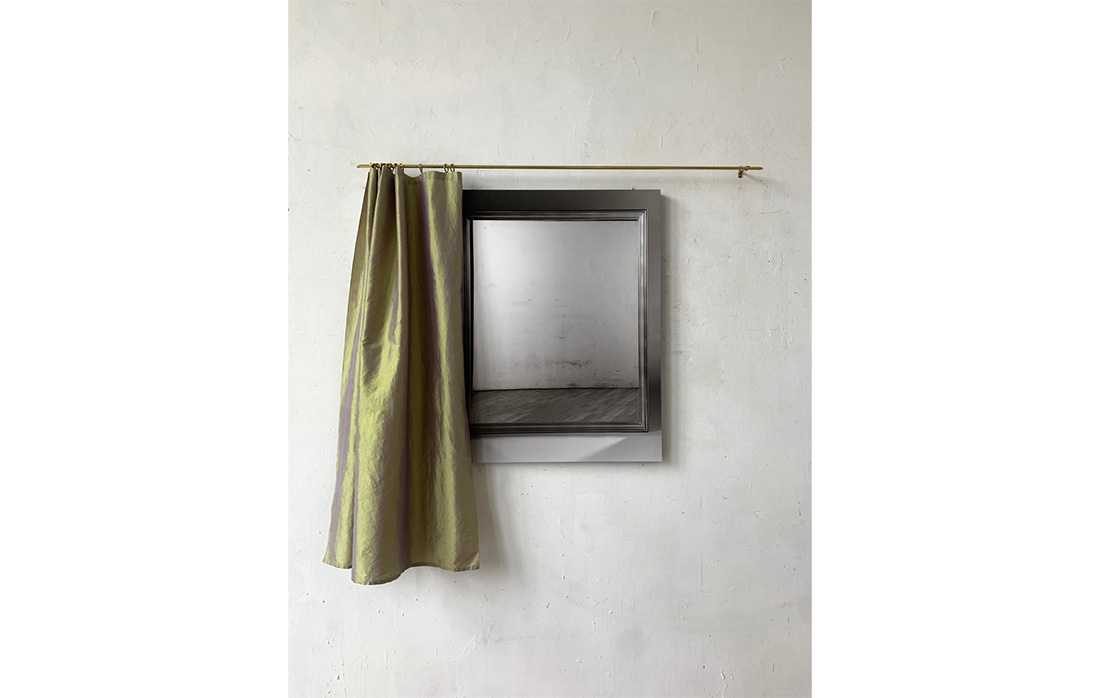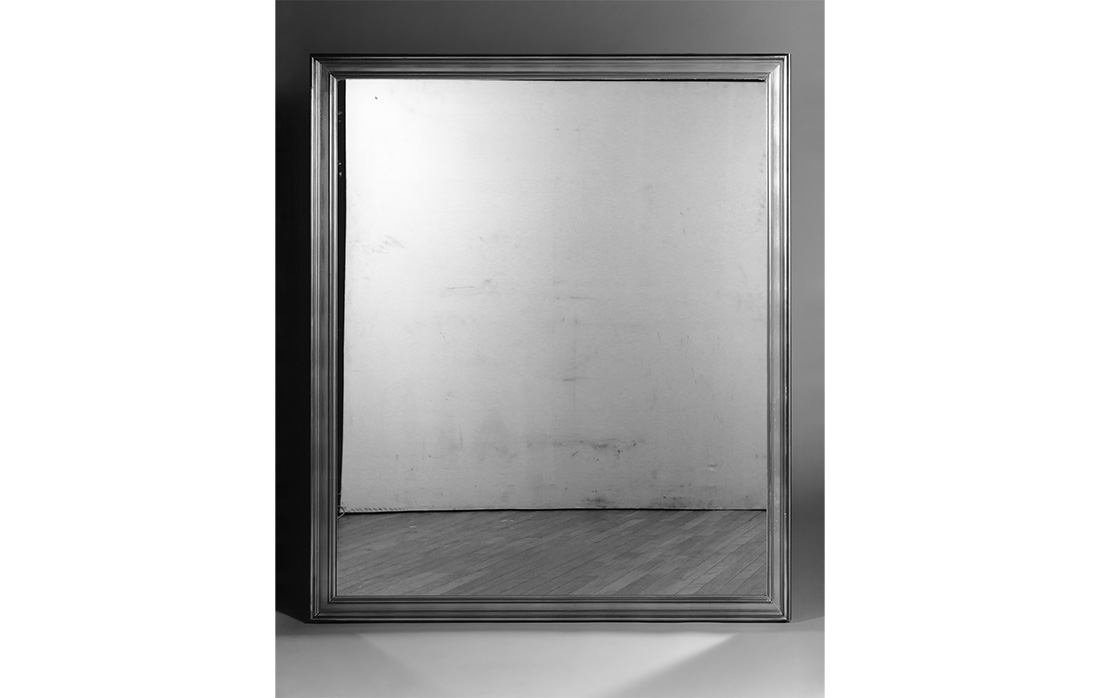Le Miroir aveugle (The Blind Mirror)
Following on from the photographs Cathédrales and Cathédrales hermétiques, Le Miroir aveugle is a work that forms part of my visual research into the elusive, the mystery felt in the face of the perpetual phenomenon of the ephemeral.
A silk taffeta curtain hung from a thin brass rod partially obscures a black-and-white photograph of a mirror.
The mirror reflects an indistinct space, a white surface that doesn’t appear to be a wall, and which is plumb with a parquet floor.
Black marks and dents are visible. Is it a projection screen?
Le Miroir aveugle reveals tiny clues that lead to one certainty: there has been something. Life has been there.
The floor is a stage emptied of its actors.
What can we really see and perceive of the world and ourselves? What remains of our experiences, our passages?
For me, this work is in a way a memento mori. It could also be interpreted as a portrait of a life in hollow.
This installation gives an active role to the spectator, who can position the curtain in front of the mirror as they wish.
This process is part of my research for an image in perpetual renewal. The perception of the work is modified within a permanent impermanence.
Le Miroir aveugle refers to certain seventeenth-century Dutch paintings in which a painted curtain hides more or less the main scene.
This illusionary effect allows different subjects – interior scenes (Vermeer, Steen and others), religious scenes (Rembrandt and others) and, above all, church interiors (Houckgeest and others) – to be revealed to the viewer.
The painting also plays its own role, as it was not uncommon at the time to protect a painting from light with a curtain.
Related projects:
Cathédrales
Cathédrales hermétiques




